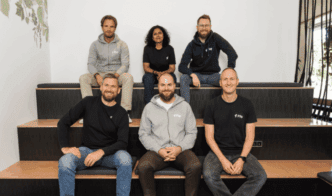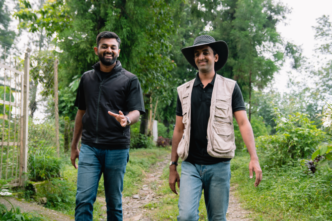Biostate AI has raised $12 million in Series A funding to radically change how we predict disease and personalize treatment. The round was led by Accel, with participation from Gaingels, Mana Ventures, InfoEdge Ventures, and returning backers like Matter Venture Partners, Vision Plus Capital, and Catapult Ventures. The latest investment brings the company’s total funding to over $20 million.
Founded in 2023 by David Zhang and Ashwin Gopinath—both seasoned biotech entrepreneurs—Biostate AI is betting big on a simple but powerful idea: that human disease can become as predictable as your favorite Netflix recommendations. Zhang, a former Rice University professor, previously co-founded NuProbe and Torus Biosystems. Gopinath, a former MIT professor, also helped launch Palamedrix and iuno.bio. Their vision is deeply personal—fueled in part by Gopinath’s own experience navigating leukemia treatments with his wife.
Instead of relying on narrow biomarker tests or trial-and-error therapies, Biostate AI uses high-throughput RNA sequencing paired with generative AI models to detect patterns across thousands of genes. The goal? To forecast how diseases progress and how patients might respond to treatment—long before symptoms appear.
Since launching its commercial platform just two quarters ago, Biostate has already processed over 10,000 samples from 150+ collaborators. Their clients include major institutions like Cornell and the Accelerated Cure Project, with many more pilot projects underway. New funds will help expand these partnerships, build out its AI capabilities, and scale its US-based RNAseq services for research and clinical use.
Reimagining Healthcare Through RNA and AI
Biostate is trying to make biology more deterministic—less guesswork, more certainty. By tapping into RNA, the molecule that tells cells which proteins to make, their AI models learn to recognize patterns that signal disease, remission, or relapse. Think of it as decoding the body’s internal language, one transcript at a time.
Their core technology includes BIRT, a multiplexing method that slashes RNA sequencing costs by nearly 90%, and PERD, which removes technical “noise” from sample data without compromising accuracy. These innovations allow Biostate to process older, even decades-old samples as easily as fresh ones—turning dusty archives into valuable data goldmines.
This low-cost model helps Biostate run experiments in-house at a fraction of traditional costs, giving it an edge in building large-scale datasets. As more samples are processed, their generative AI becomes more accurate—learning to identify early signs of leukemia relapse, or how a patient might respond to immunotherapy.
The startup’s AI works like a molecular version of ChatGPT—trained not on text, but on billions of RNA expressions. And just as ChatGPT learned to master language, Biostate’s AI is learning the grammar of biology. Their consistent lab methods eliminate the “batch effects” that often distort multi-lab studies, giving the AI a cleaner signal to learn from.
One-Stop Shop for Precision Medicine
Beyond the science, Biostate’s business model is built for scale. Instead of piecing together different vendors for sequencing, analysis, and insights, everything happens under one roof—from sample to clinical recommendation. They’re becoming a full-stack molecular medicine provider.
Their software tools, like Quantaquill, even turn raw analysis into publication-ready manuscripts—saving time for researchers while encouraging broader adoption of their platform.
With active sites in Houston, Palo Alto, Bangalore, and Shanghai, Biostate is expanding globally and quickly. They’ve already secured agreements to process hundreds of thousands of de-identified samples annually, providing a rich foundation for training AI models capable of transforming oncology, autoimmune disease care, and beyond.
As co-founder and CTO Ashwin Gopinath puts it, “We’re doing for molecular medicine what large language models did for text—scaling the raw data so the algorithms can finally shine.”













